Hello Sailor
The perception of Hello Sailor has changed over the years – for some they are a band that has been together forever and their fame is based only on radio hits like ‘Blue Lady’ and ‘Gutter Black’.
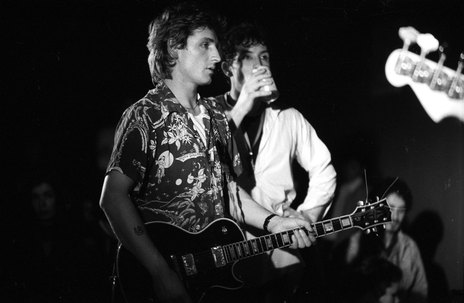
Dave McArtney and Graham Brazier with Hello Sailor at Auckland's Gluepot, 1978
Photo credit:
Photo by Murray Cammick
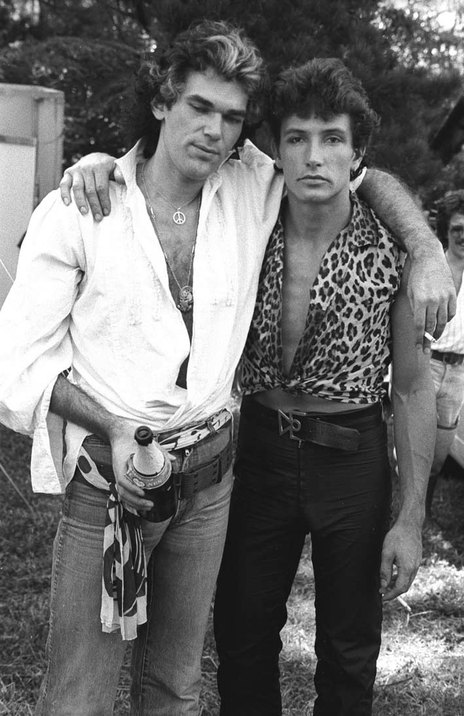
Marc Hunter and Graham Brazier, Great Western Festival Jan 15, 1978
Photo credit:
Photo by Murray Cammick
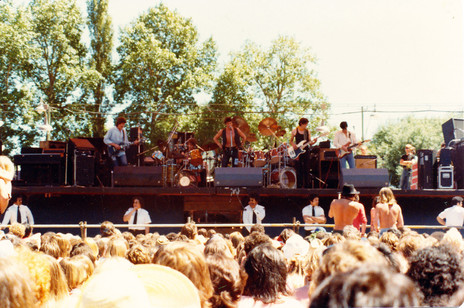
Hello Sailor at Great Western Festival, Moller's Farm, West Auckland, Jan 15, 1978.
Photo credit:
Photo by Garry Robertson
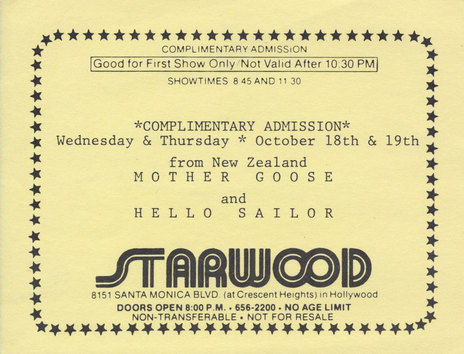
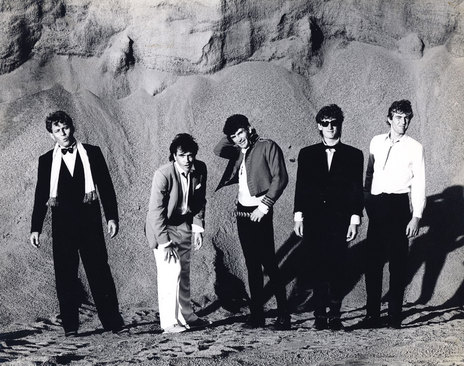
Ricky Ball, Harry Lyon, Graham Brazier, Dave McArtney, Lisle Kinney, a publicity shot from 1985
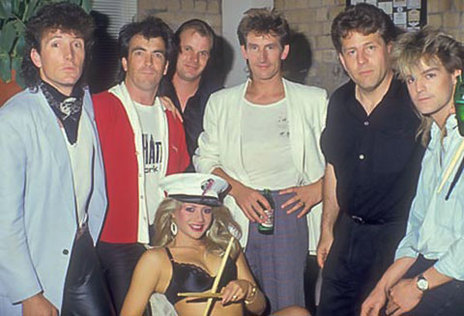
The touring band for the 1985 Hello Sailor Shipshape & Bristol Fashion album: Graham Brazier, Harry Lyon, Neil Hannan, Dave McArtney, Ricky Ball and Tim Wedde
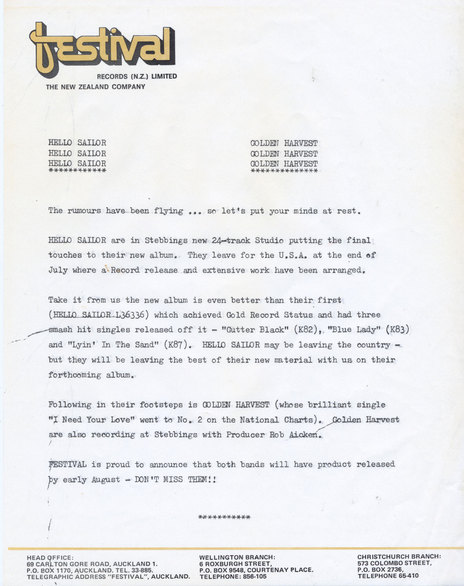
The original press release for the second Hello Sailor album, announcing they were off to LA. Plus Golden Harvest are following their footsteps, although it's unclear exactly how.
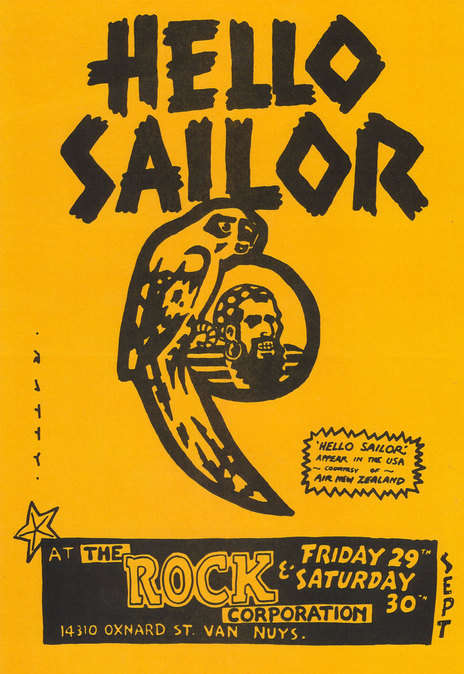
Hello Sailor interview, Give It A Whirl, 2003 (NZ On Screen, 2022)
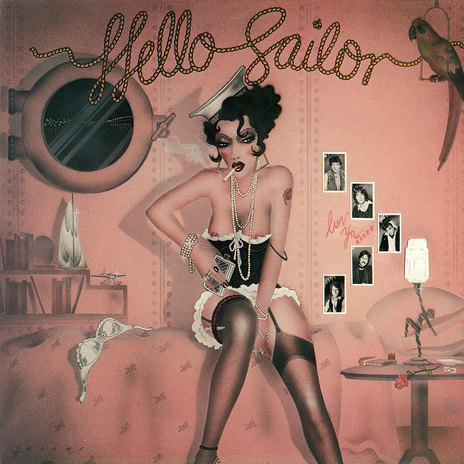
Hello Sailor's debut album from 1977, produced by Rob Aickin. Cover design by Peter Adams, internal band photos by Eldred Stebbing’s son Vaughan.
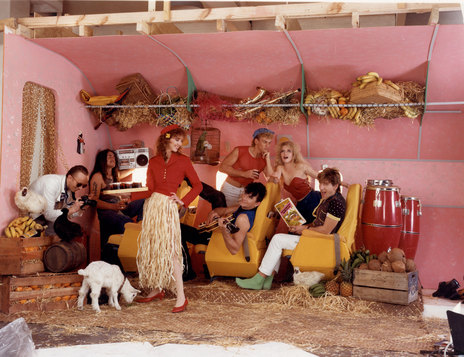
Originally intended for advertising use, this image by Phil Peacock shows Karyn Hay during her Radio With Pictures prime, with several leading New Zealand musicians of the era. It became the cover of Rip It Up's December 1983 issue.
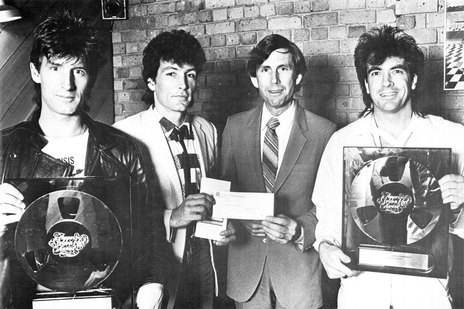
More awards - Dave McArtney, Graham Brazier, Harry Lyon
Fugitive For Love
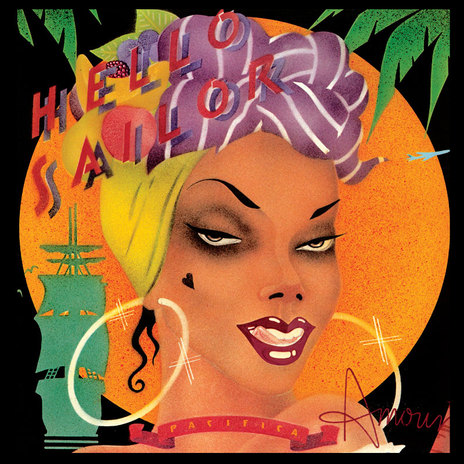
Hello Sailor’s second album, originally released in 1978, just prior to the ill-fated trip to Los Angeles
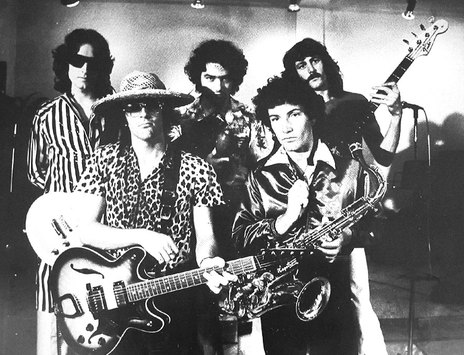
1976
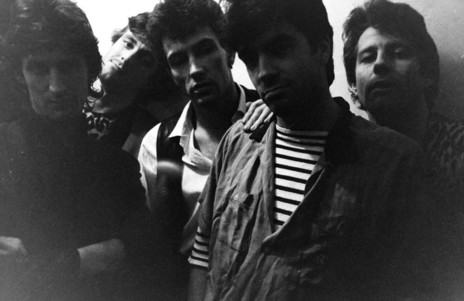
Hello Sailor in 1977: Dave McArtney, Lisle Kinney, Graham Brazier, Harry Lyon, Ricky Ball
Photo credit:
Photo by Jeremy Templer
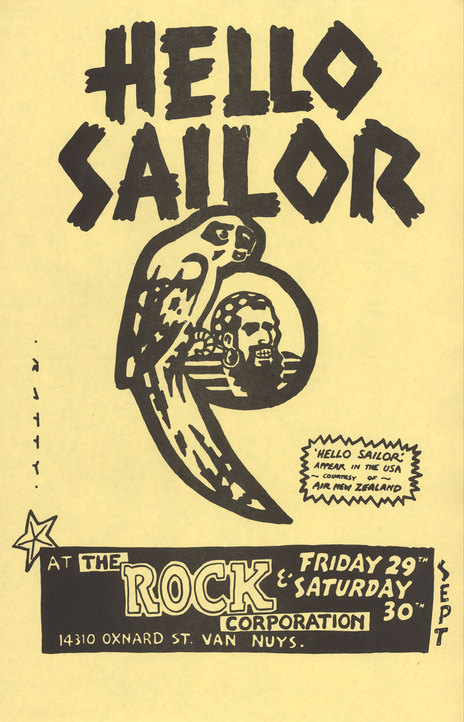
Gutter Black (Campbell Live, 19 Dec 2008)
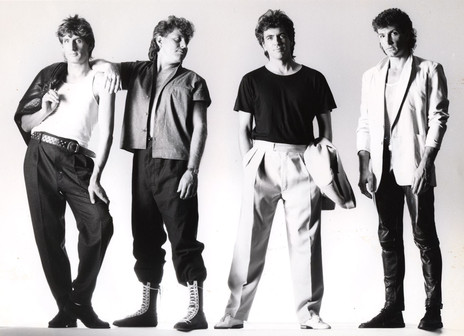
A 1985 Zulu/CBS publicity shot: Dave McArtney, Ricky Ball, Harry Lyon, Graham Brazier
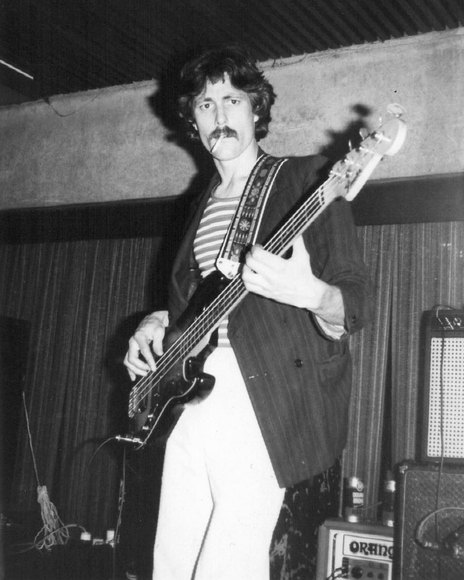
Lisle Kinney, Windsor Castle, 1977
Photo credit:
Photo by Simon Lynch
Gutter Black & Billy Bold (Play It Strange concert at The St James Theatre 2004)
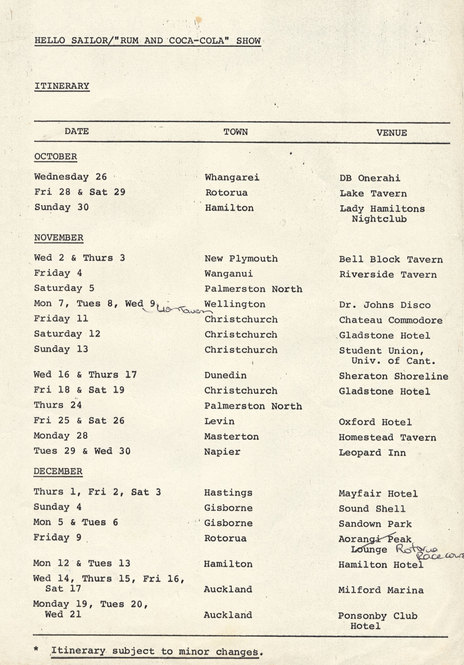
1977 Hello Sailor tour schedule as supplied to the band and media, promoting their debut album
Photo credit:
Murray Cammick Collection
Winning Ticket
Sailor's Voyage (2007, part 1 of 4) - NZ On Screen
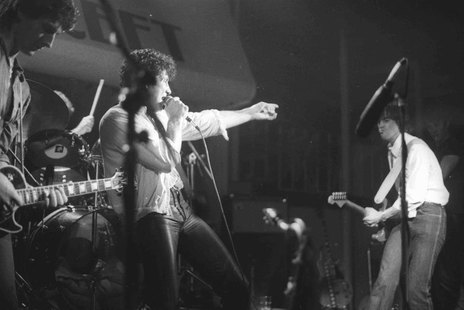
Dave McArtney, Graham Brazier and Harry Lyon performing Son of Sam - Mainstreet, 1979
Photo credit:
Photo by Murray Cammick
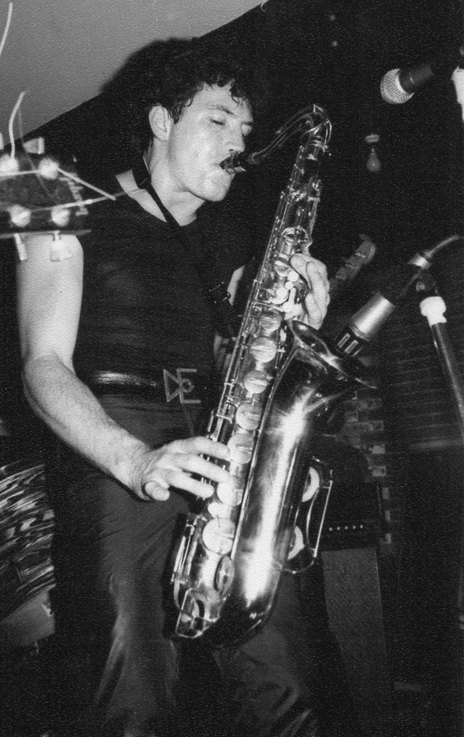
Graham Brazier, Auckland University Café, 1977
Photo credit:
Photo by Simon Lynch
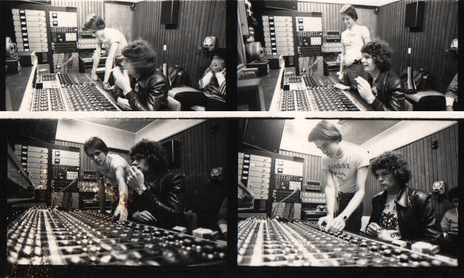
Ian Morris and Rob Aickin recording the debut Hello Sailor album at Stebbing Studios, 6 June, 1977
Photo credit:
Simon Grigg collection
Hello Sailor - Blue Lady (with Ray Manzarek at the Whiskey A Go Go, LA 1978)
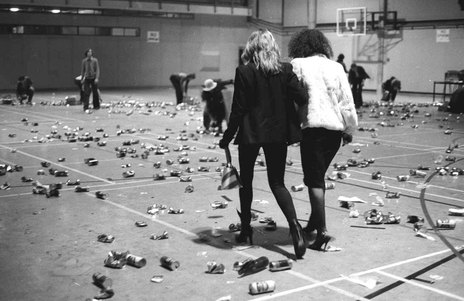
Auckland University Gym after a Hello Sailor gig - late 1970s
Photo credit:
Photo by Murray Cammick
Hello Sailor - Never Fade Away
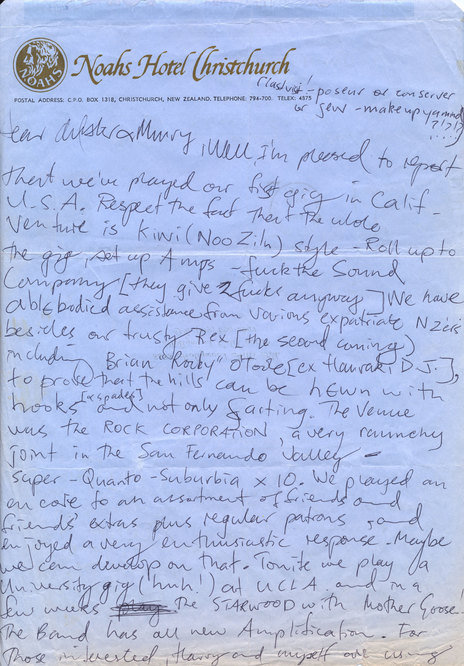
Dave McArtney writes to Rip It Up from Los Angeles, 1978
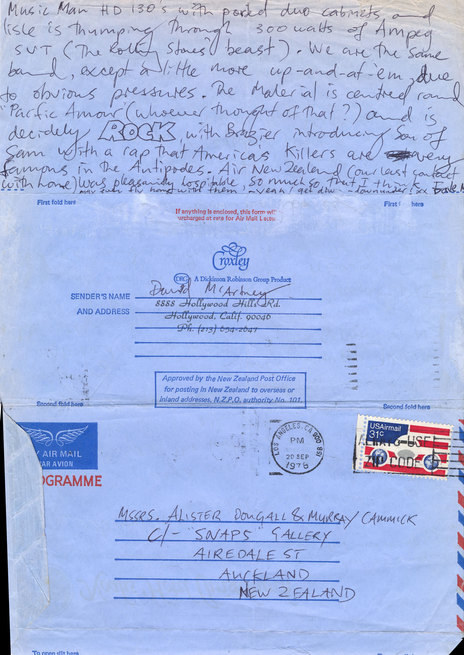
Page two of Dave McArtney's letter from LA, 1979.
Photo credit:
Murray Cammick Collection
Live, 1978
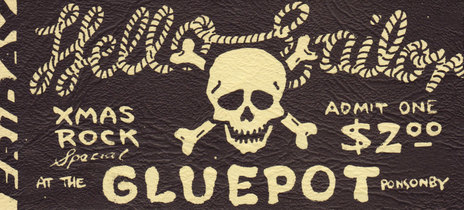
Hello Sailor at The Gluepot for $2!
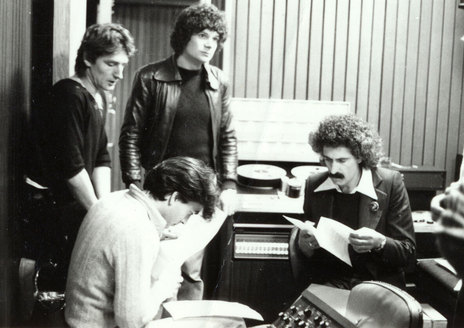
Dave McArtney and Harry Lyon with producer Rob Aickin (standing) and manager David Gapes. Stebbing Recording Studios 1977/78
Photo credit:
Photo by Murray Cammick
New Tattoo
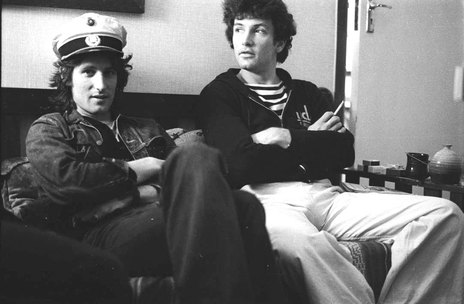
Dave McArtney and Graham Brazier, July 1977
Photo credit:
Photo by Murray Cammick
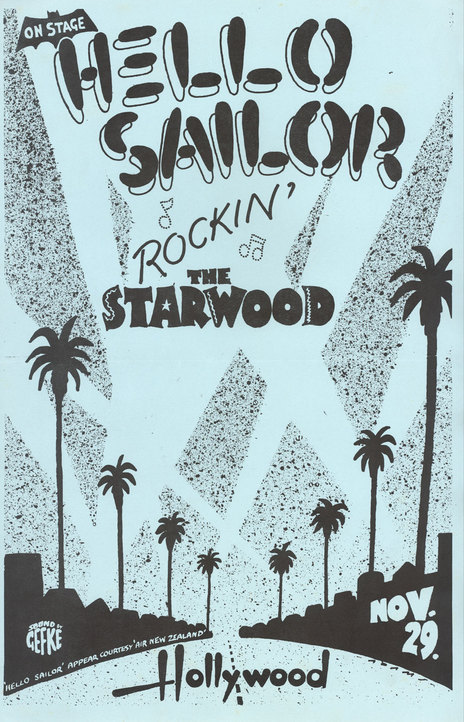
Son Of Sam (Live in LA 1978)
Gutter Black
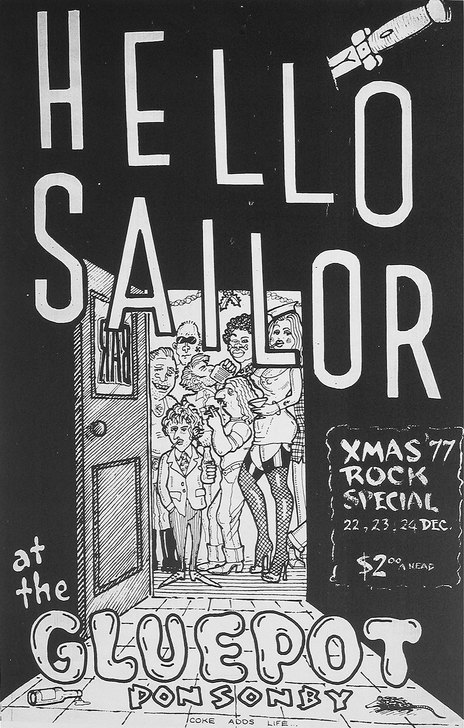
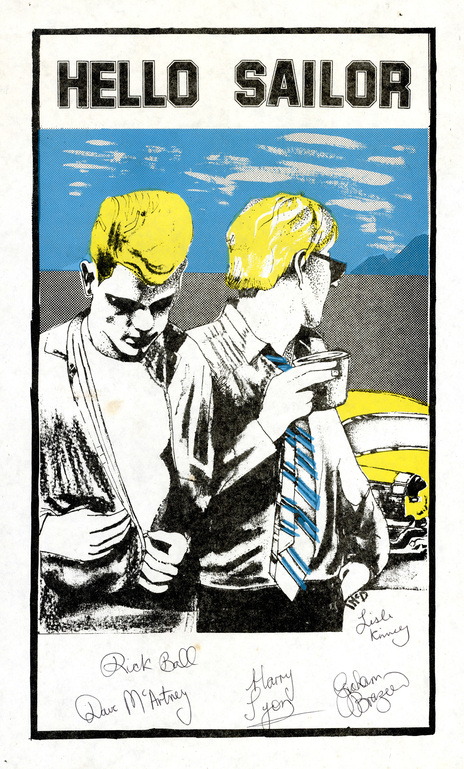
Late 1970s Hello Sailor poster designed by Ian McDougall
Photo credit:
Mike Corless Collection. Design: Ian McDougall
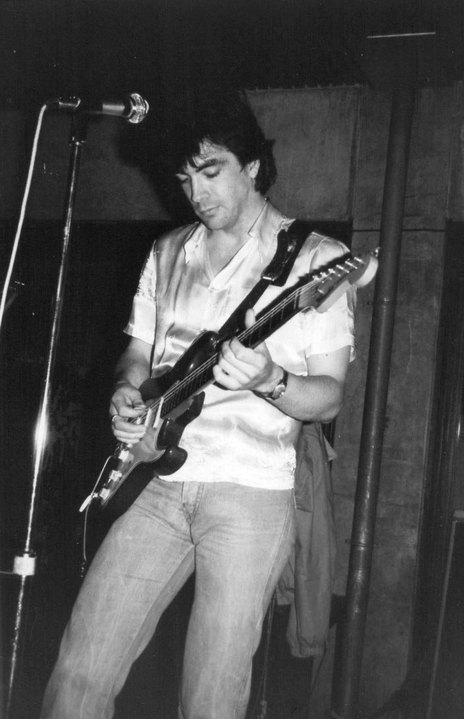
Harry Lyon, Auckland University Café, 1977
Photo credit:
Photo by Simon Lynch
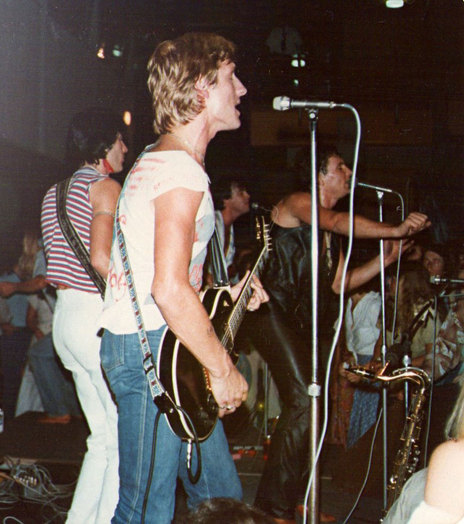
Hello Sailor, 1977
Photo credit:
Photo by Simon Lynch
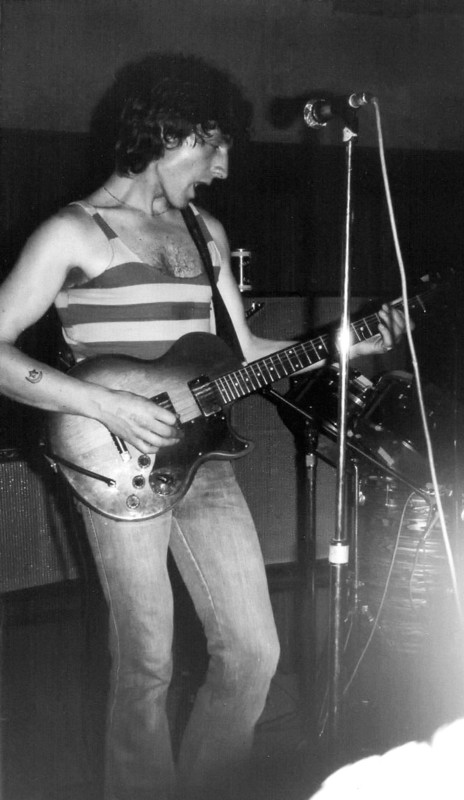
Dave McArtney with Hello Sailor, Windsor Castle, Parnell, Auckland 1977
Photo credit:
Photo by Simon Lynch
Lying in the Sand
Dr Jazz (with Ray Manzarek at the Whiskey A Go Go, LA 1978)
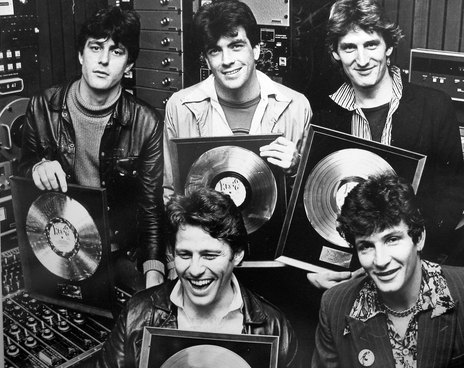
Gold Discs for the Hello Sailor album
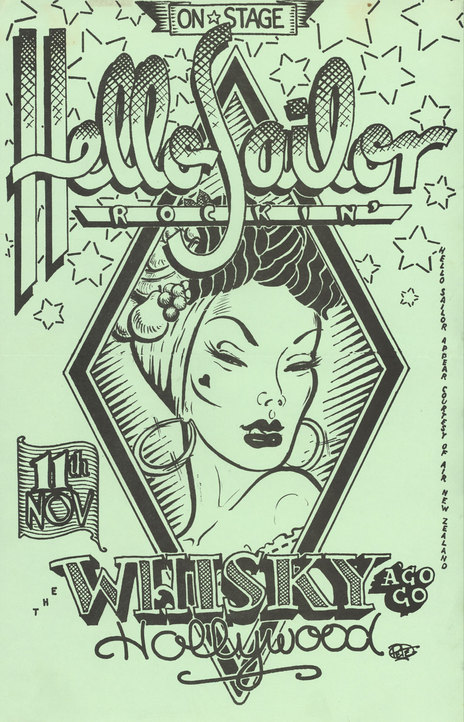
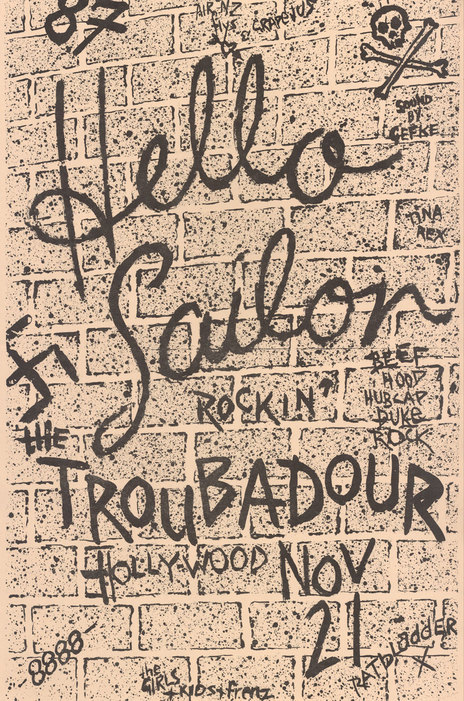
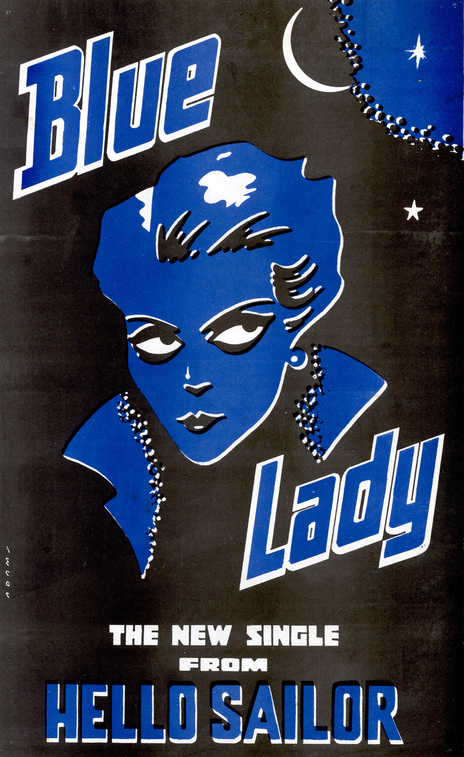
1977 'Blue Lady' poster designed by Peter Adams
Photo credit:
Ian Morris Archives. Design: Peter Adams
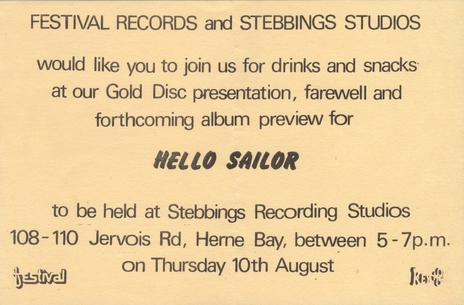
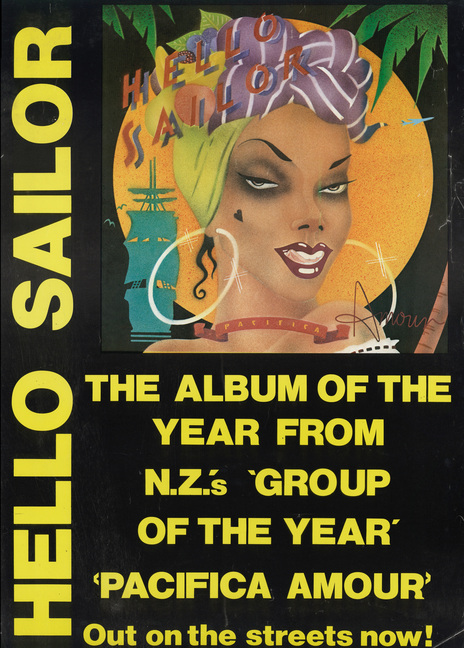
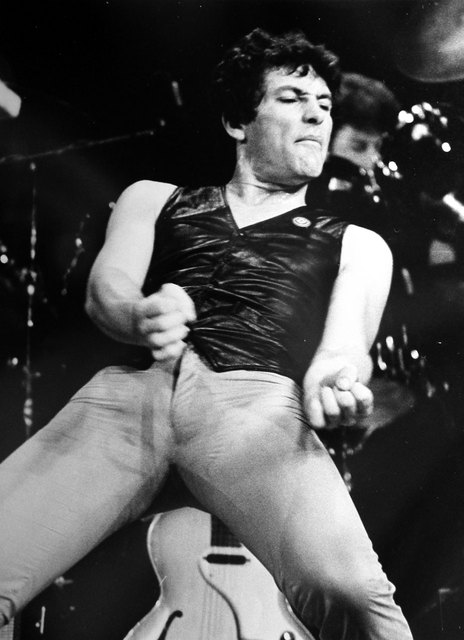
Graham Brazier, late 1970s
Blue Lady
Members:
Graham Brazier - vocals, saxophone, harmonica
Dave McArtney - vocals, guitar
Ricky Ball - drums
Paul Woolright - bass
Gordon Joll - drums
Tony Lumsden - bass
Graeme Turner - drums
Andy MacDonald - bass
Links:
NZ On Screen's collection of Hello Sailor videos and documentaries
Trivia:
In 1975 in Hotlicks magazine (No.19) Hello Sailor were described as – “Vamp rock, not to be confused with camp rock".
Hello Sailor’s early (circa 1975) on stage gimmick was to share their stage with ornamental antiques, such as chrome deco lampshades, pot plants and furniture provided by Peter Rogers of 20th Century Antiques of Ponsonby Road.
Discography








